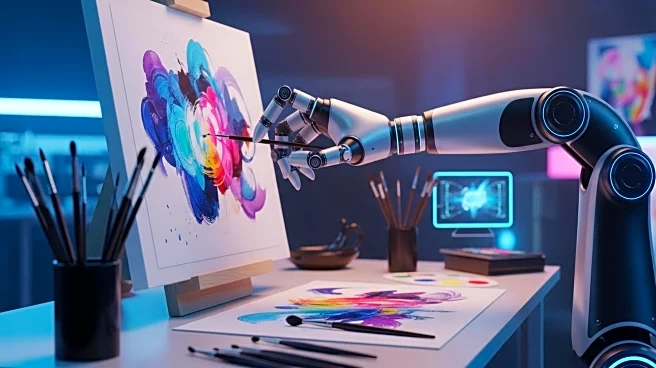What's Happening?
A recent report by WPP Media reveals that a majority of marketers believe artificial intelligence (AI) will be responsible for producing most creative content by 2030. The report, part of WPP Media's 'Advertising in 2030' series, indicates that 71% of marketers foresee AI playing a dominant role in creating art, music, TV shows, and movies. This shift reflects the rapid pace of AI development and its increasing integration into the advertising ecosystem. The report also explores other potential future scenarios, such as bot-to-bot interactions between brands and consumers, and the impact of AI on job roles within the industry.
Why It's Important?
The anticipated rise of AI in creative content production signifies a transformative shift in the advertising and media industries. As AI technologies become more sophisticated, they offer opportunities for efficiency and cost savings, potentially reshaping how creative content is developed and consumed. This shift could lead to changes in job roles and skill requirements, as well as new business models centered around AI-driven content creation. While some industry experts express optimism about these changes, others caution about the potential impact on employment and the creative process.
What's Next?
As the industry moves towards greater AI integration, companies will need to adapt their strategies to leverage AI's capabilities while addressing potential challenges. This includes investing in AI technologies, retraining employees, and exploring new business models that align with AI-driven content production. The industry will also need to navigate ethical considerations related to AI's role in creativity and its impact on human creators. As these developments unfold, stakeholders will closely monitor the implications for the advertising and media landscapes.









